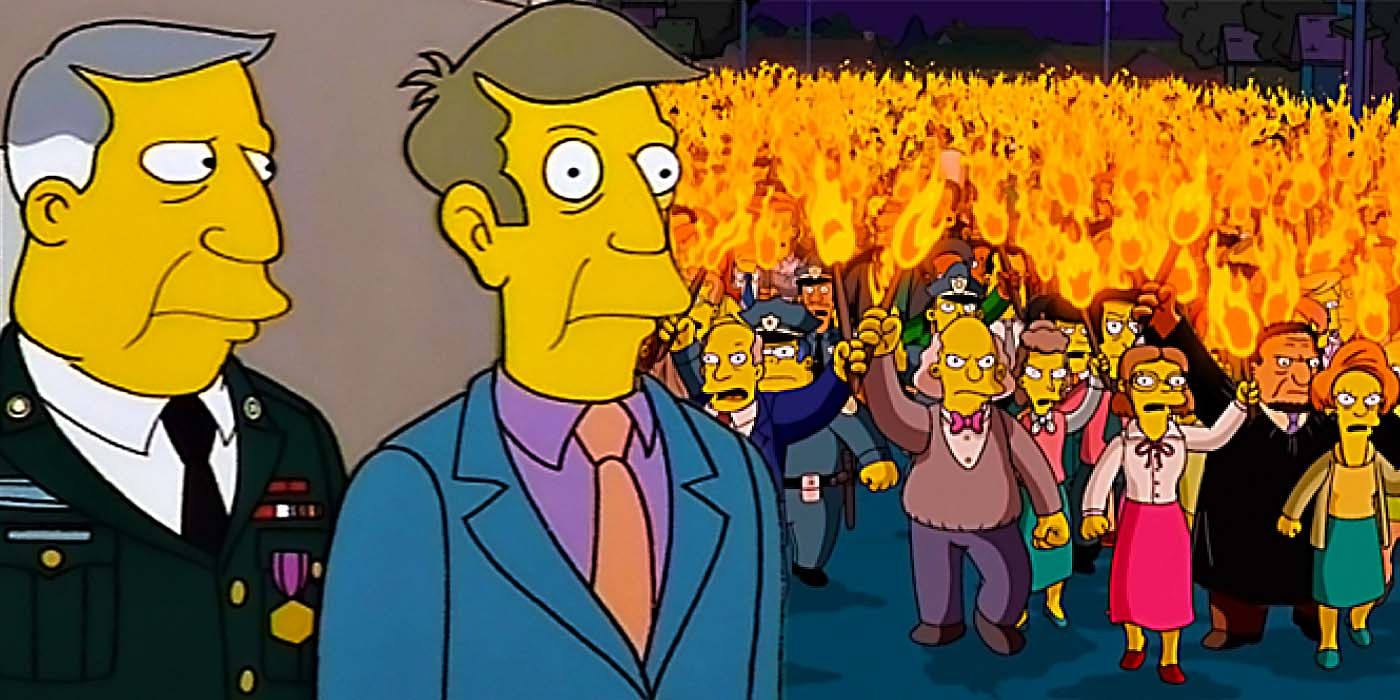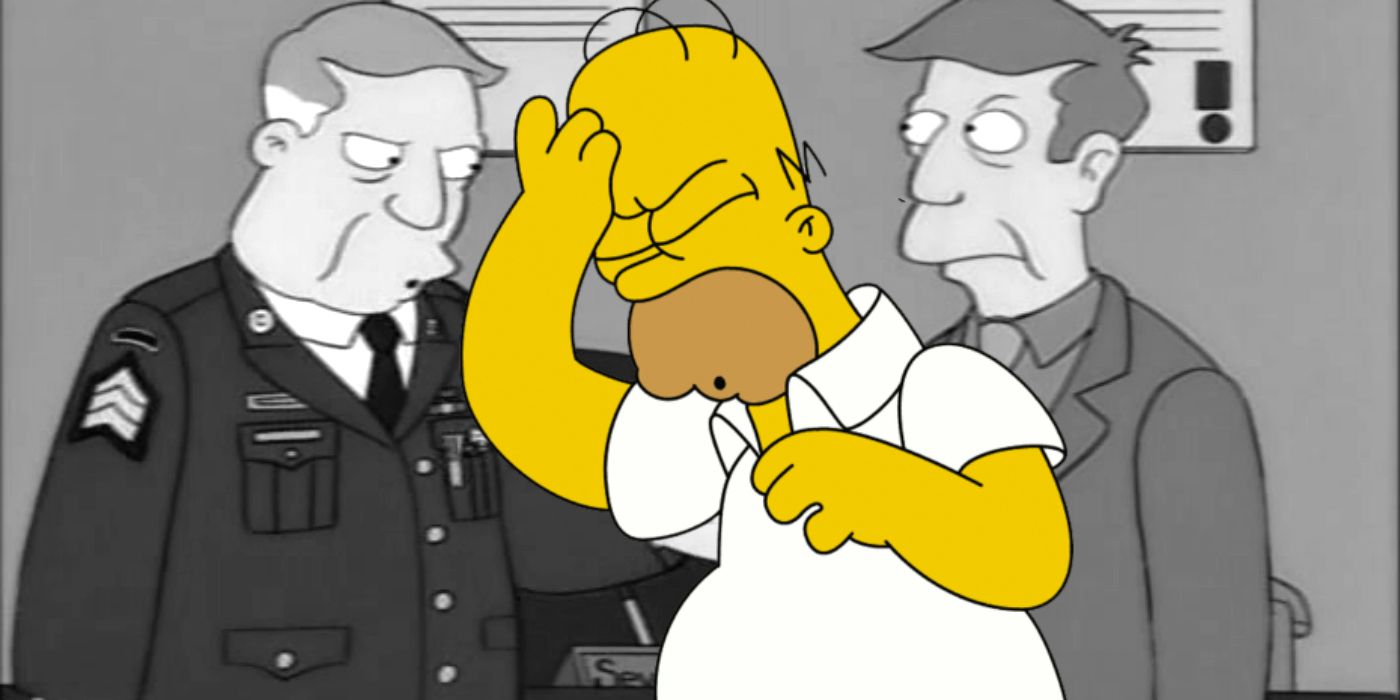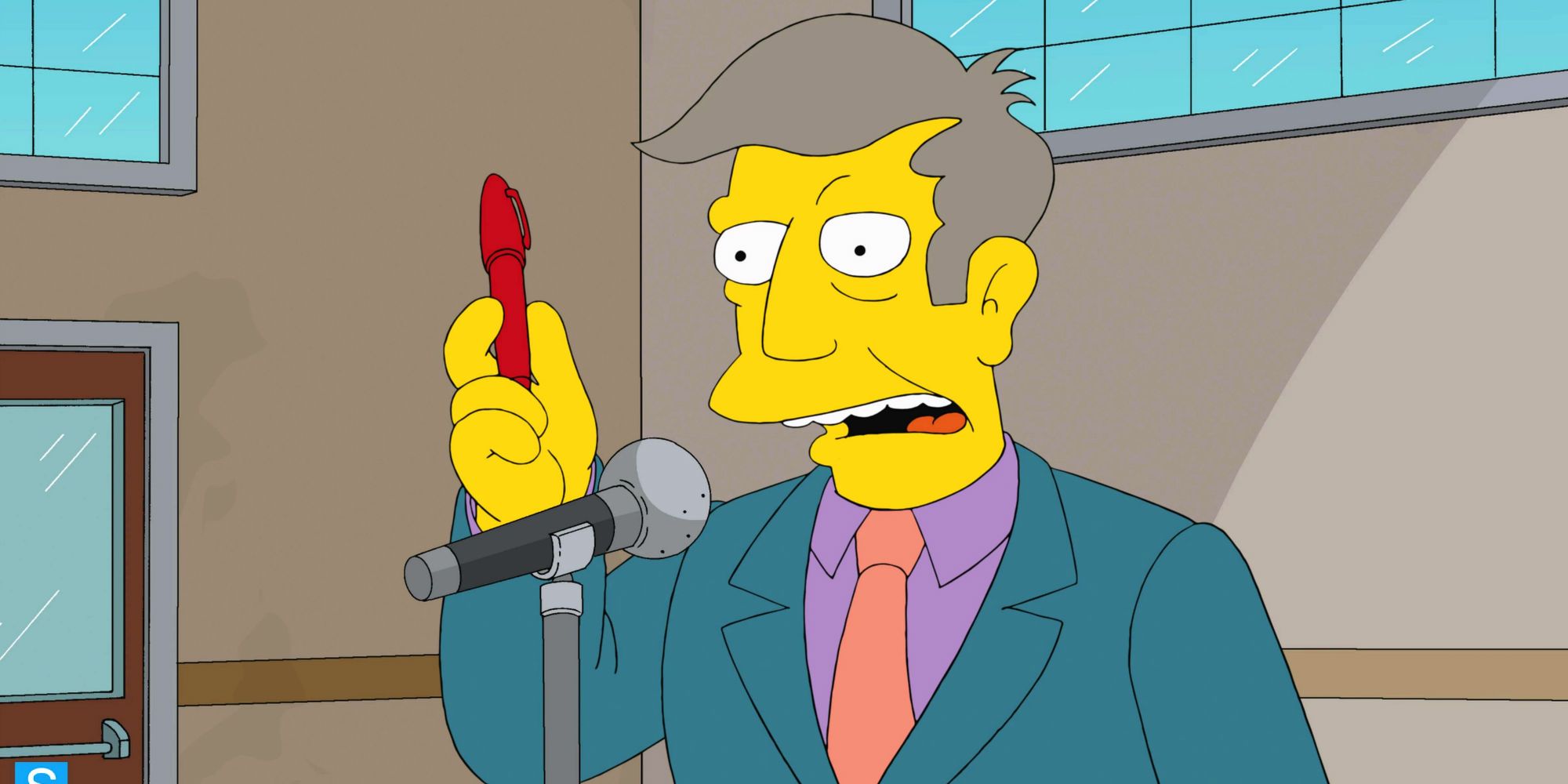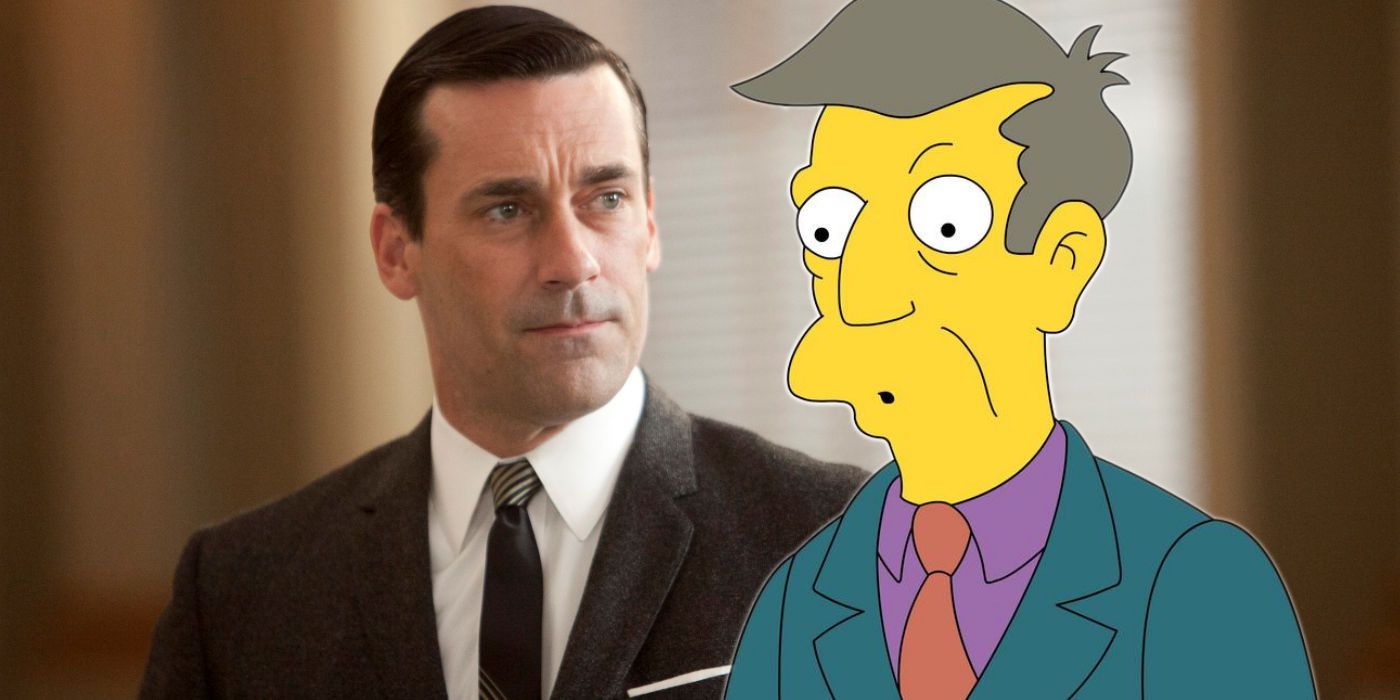“The Principal & The Pauper” (season 9, episode 2) established the playful non-canon of The Simpsons, but why did the Armin Tamzarian episode upset fans of the series so much at the time and in the years since? In the decades since the series began, one thing that the anarchic animated sitcom The Simpsons has never been overly worried about is the idea of canon and internal continuity. The show has frequently contradicted itself when it comes to the birth dates of the titular family, the location of Springfield, and the seemingly ageless population of the town.
That being said, there are times when the elastic canon of The Simpsons stretches too far for many fans. A recent episode that depicted Homer as a teen in the ‘90s (not the first time the series has controversially attempted this joke) earned so much criticism that producer Matt Selman addressed the confusing canon of The Simpsons on Twitter. However, there is one much older, and much more formatively infamous, case of The Simpsons messing with its canon in a way many fans found unforgivable.
In the thirty-two seasons (and counting) of The Simpsons, only a few episodes have ever been called the worst that the show ever produced. Typically, this jab is only aimed at episodes featuring infamously fawning treatment of cameo-ing celebrities, such as the appearances by Elon Musk and Lady Gaga, or episodes that feature brutally dark, bleak humor like the infamous "Boys of Bummer" (season 18, episode 18). However, “The Principal & The Pauper” is neither, yet it remains one of the earliest episodes frequently listed as the most-hated of The Simpsons. This is because the episode fundamentally alters the characterization of fan-favorite supporting character Principal Skinner, introducing his old self Armin Tamzarian and earning the ire of many fans in the process. So, what was it about this plot that made fans—and many critics—so furious at the time and since?
Principal and the Pauper Explained
The episode sees Principal Skinner exposed as a fake, with his real name being Armin Tamzarian and his backstory explaining that he stole the identity of real Springfield native Seymour Skinner (played by Martin Sheen) before returning from Vietnam. It’s a zany story that climaxes with the town en masse deciding they prefer the original version of Skinner and essentially enforcing a retcon of the episode’s action (within the episode) by exiling Sheen’s original Skinner and opting to call Armin Tamzarian the “real” Seymour Skinner from hereon out. The Simpsons’ inconsistent canon had occasionally annoyed fans before this point, but "The Principal and the Pauper" was one of the first cases where the series seemingly wanted to challenge the idea of continuity with an experimental one-off outing—and many didn’t care for the audacious idea.
Why Fans Hated The Armin Tamzarian Twist
Discovering that Skinner was a liar went against the starched shirt stuffiness that defined the character, and while some fans found his subversive origins amusing, some were less impressed. This marked the start of The Simpsons toying with how characters were perceived, and some fans preferred to keep things simple. Series creator Matt Groening called the episode one of his least favorite and referred to it as a “mistake,” while Skinner’s voice actor Harry Shearer called the storyline “arbitrary and gratuitous” in its overnight rewriting of the character’s entire history. However, much like how many fans disagree with "Who Shot Mr. Burns" marking the end of the show’s golden age, there are a great many defenders of the episode who claim "The Principal and the Pauper" is an important piece of TV history.
Why The Principal & The Pauper Secretly Worked
Episode writer Ken Keeler, who also scripted the acclaimed “El Viaje Misterioso de Nuestro Jomer (The Mysterious Voyage of Homer)” (season eight, episode nine) defended "The Principal and The Pauper" by noting that the episode’s story satirizes the very sort of people who took issue with its central gag. Per Keeler: “[The Principal and the Pauper] is about a community of people who like things just the way they are… When the episode aired, lo and behold, a community of people who like things just the way they are got mad... This episode is about the people who hate it.” Like the earlier (and also deeply divisive) "Homer’s Enemy", the episode intentionally takes the cozy, unchanging status quo of sitcoms and challenges its conventions, playing with the form in a way that later series such as Community, WandaVision, and Kevin Can F Himself would explore further.
With this thesis from the writer in mind, "The Principal and the Pauper" is a surprisingly strong episode on a rewatch, with many memorable quotes and a compelling central story. The titular family is involved in the story but don’t take it over, and Springfield figures as varied as Jasper and Agnes Skinner all get moments to shine. Meanwhile, the plot itself is an engaging one (so much so that its central twist was later stolen by an acclaimed prestige TV series in the late ‘00s), and like similar outings that spotlight figures like Comic Book Guy and Krusty the Clown, Skinner transpires to be a character well-rounded enough to warrant an episode of his own. Despite these positive qualities, though, "The Principal and the Pauper" remains resented by fans, and arguably for good reason given the episode's long-term impact.
Why The Principal & The Pauper Is Still Hated
While the episode itself is a solid outing in terms of writing, the trend that "The Principal & The Pauper" began—of rewriting The Simpsons canon for the sake of one-off gags—is one reviled by many fans, and it has come to define the show's messy storytelling approach for a lot of viewers. Earlier Simpsons outings had cut potentially solid gags despite their promise, like Chief Wiggum being an alien, because that they would have irreversibly altered the “reality” of the show. This seems like a minor quibble for a series as silly as The Simpsons, where anything can happen for the sake of a joke, but it’s a vital distinction that the show was good at making during its Golden Age. This era of The Simpsons famously managed to balance surreal comedy with real emotional takes, something the series struggle with in years to come. Ultimately, while "The Principal and the Pauper" is far from the worst episode of The Simpsons as the outing stays true to its characters, it unfortunately did presage an era of the series giving up on consistency for the sake of one-off laughs.





